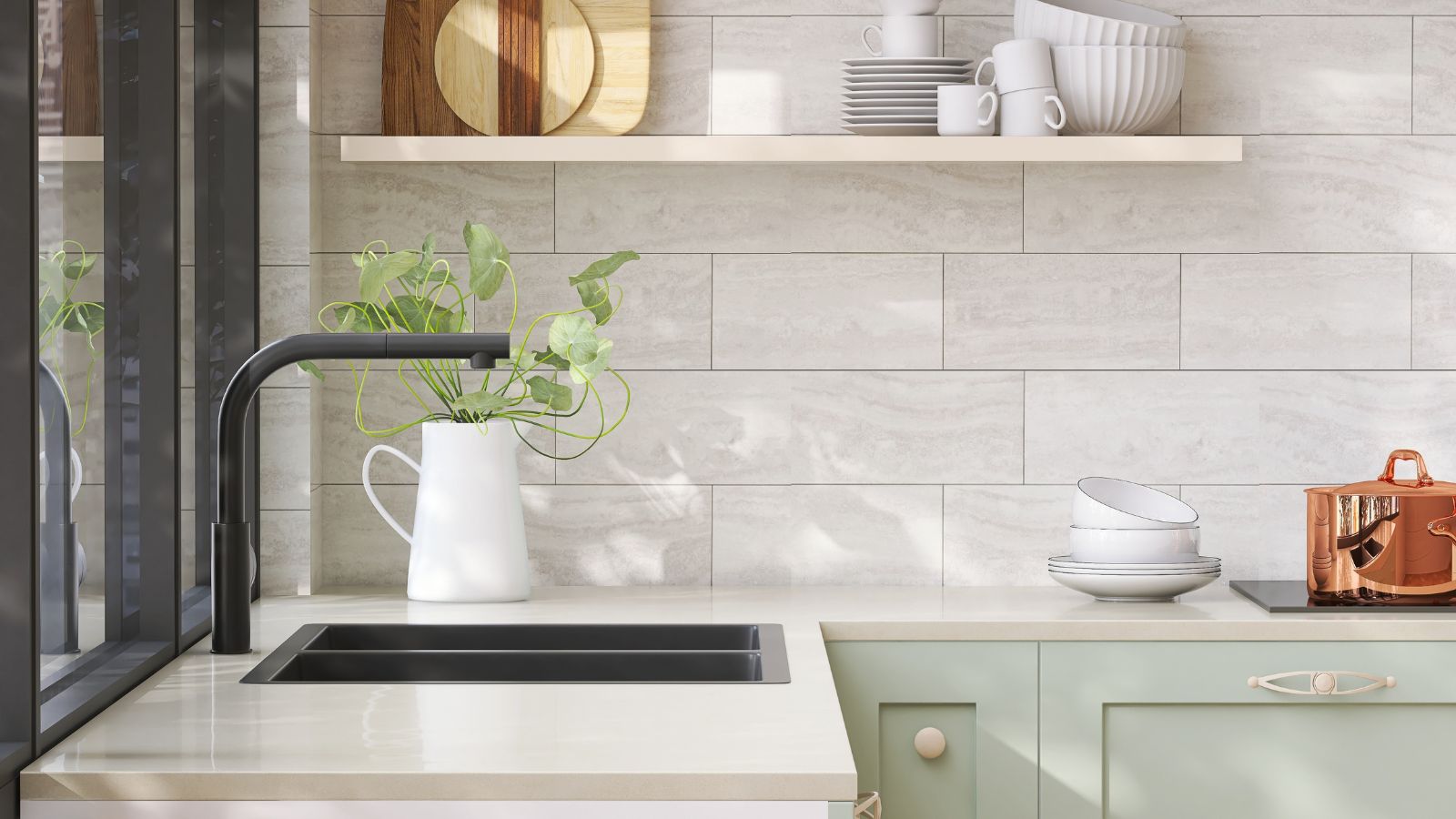
If you're dealing with the nuisance of a blocked or slow-draining sink or shower, you don't have to resort to harsh chemicals to get things moving.
Whilst traditional drain cleaners are packed full of strong chemicals, not every clog requires such a strong solution. If you're exploring how to unclog a sink, we have spoken to our cleaning and drainage experts for their cleaning tips on using and making DIY drain cleaners – so you can quickly make a drain cleaner that still packs a punch.
4 DIY drain cleaning solutions professionals swear by
1. Vinegar and baking soda
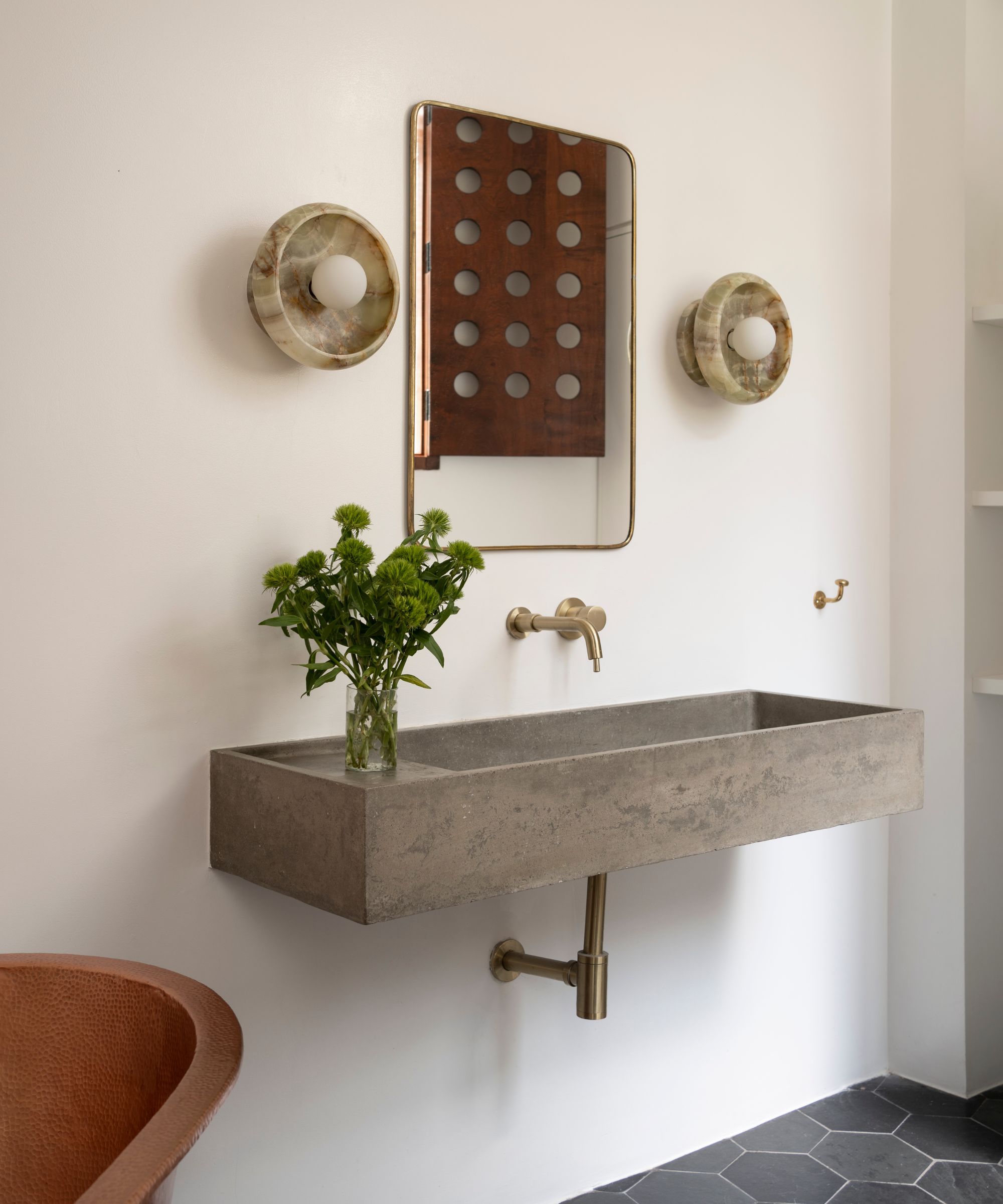
For minor blockages, all you need is vinegar, such as this from Amazon, baking soda, available at Amazon, and boiling water. It's effective, affordable, and simple to do.
'Cleaning your drains is the one task we all forget about until we see that water refusing to go down,' says Ken Doty, cleaning expert and COO of The Maids. 'Luckily, there are plenty of DIY methods to clear a drain that use common household ingredients.
'When you know how to clean your drains the right way, you can reduce the amount of buildup that causes odors and germs. The best way to clean a drain is with baking soda, distilled white vinegar, a lemon, and hot water.'
Doty shares how to do it in six simple steps. Remember to remove your drain stopper first:
- Boil two quarts of water, either on the stove or in a kettle
- Using oven mitts, slowly pour the boiling water down the drain
- Pour a cup of baking soda down the drain
- Rinse the sink and drain thoroughly with hot water from the sink
- For extra odor-fighting, pour lemon juice or distilled white vinegar down the drain
- After 30 minutes, rinse the sink and drain
It's worth noting some experts warn against repeatedly using baking soda and vinegar to unclog a drain, as it may cause issues with your plumbing over a long while so if this is a recurring problem, call in professionals to deal with the underlying issue.
For more DIY inspiration, we explore cleaning with vinegar and cleaning with baking soda in our dedicated features.
2. Salt and baking soda scrub
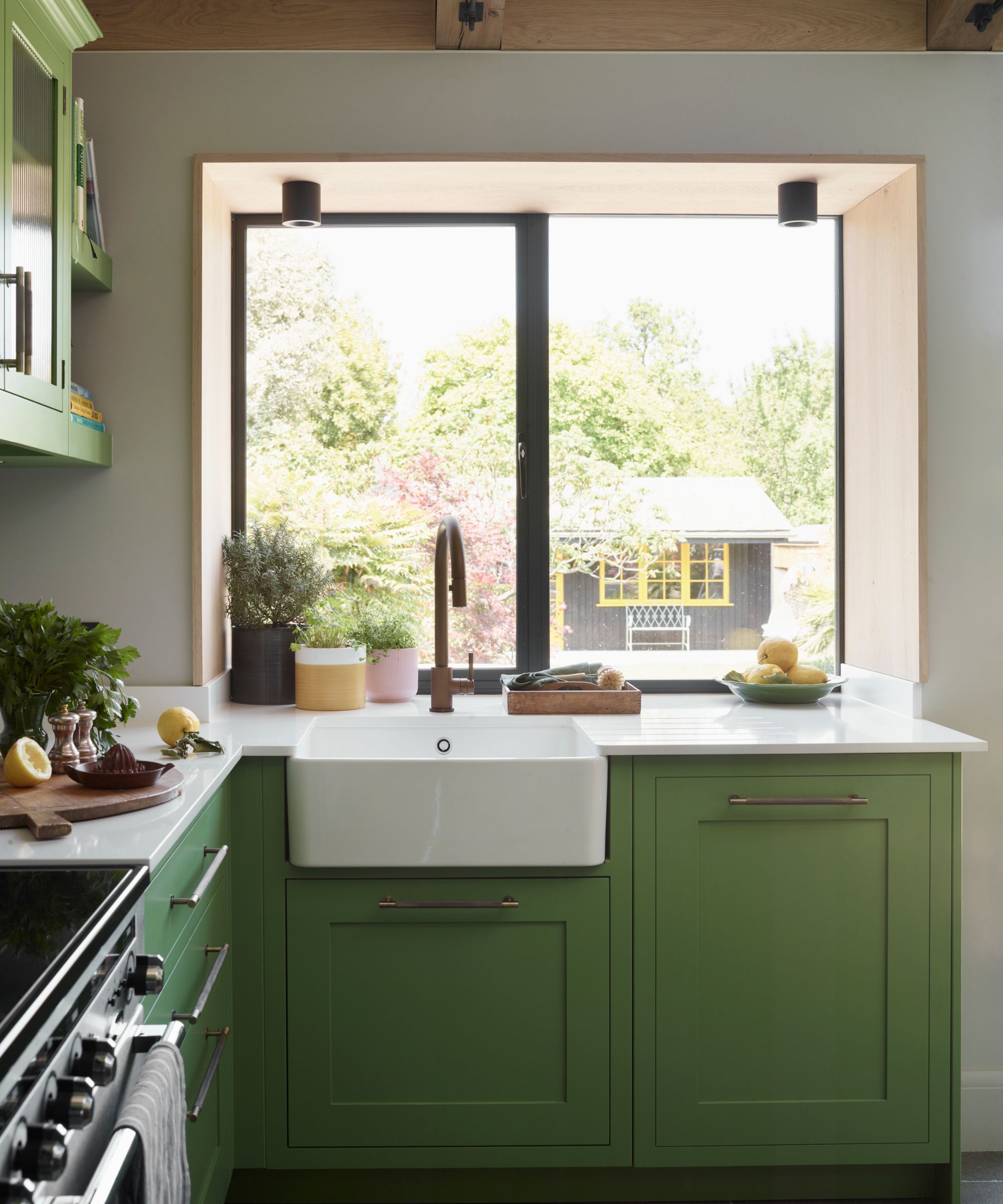
Another DIY drain cleaner solution is cleaning with salt and baking soda in combination. 'If you would like something harsher, try mixing salt with baking soda,' says Daniel Brown, cleaning expert and CEO of Handy Cleaners. 'It will help in loosening more stubborn clogs, especially after a hot water flush.'
All you need is 1/2 cup of baking soda, 1/2 cup of table salt, and 2 cups of boiling water, so it's super affordable, and you probably won't need to go to the store either. Brown recommends the Morton Salt Sea Salt, available at Walmart.
Brown explains how to use this mixture in four steps:
- Combine the baking soda with salt until they are well mixed together
- Pour into the sinkhole opening
- Leave it there not less than thirty minutes, or overnight if possible
- Boil two cups of water and finally pour them down the drain to rinse and remove residue
'This is particularly useful when exploring how to lean a kitchen sink, as they are prone to grease accumulation and food particles,' he says.
3. Hydrogen peroxide
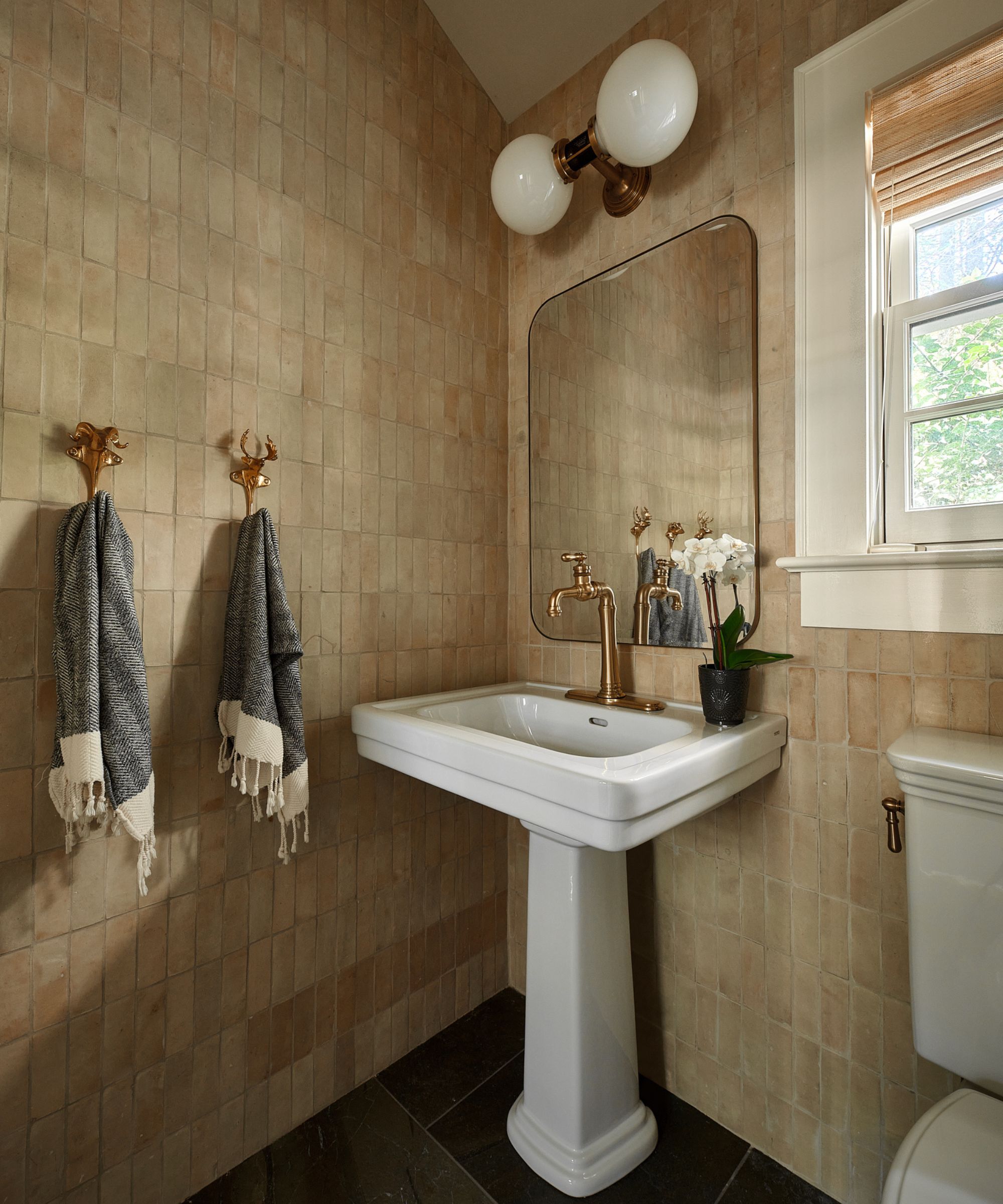
Often used to bleach hair, hydrogen peroxide has a wealth of cleaning uses around the home, too.
It's a great disinfectant that's not as harsh on your plumbing as traditional drain cleaners, so it's safe to use more frequently to keep your drains in top condition.
Simply pour one cup of hydrogen peroxide down your drain, wait at least half an hour and rinse with hot water. This trick also works well when paired with baking soda, mixed in a ratio of 1 tablespoon to 1 cup of hydrogen peroxide.
We recommend using the Food Grade 3% Hydrogen Peroxide available at Amazon, as it's food-safe and all-natural. Never use hydrogen peroxide with a concentration above 10%, as this is a strong and corrosive irritant that can cause irritation, inflammation, or worse, particularly if it comes into contact with the eyes.
4. Enzyme based drain cleaners
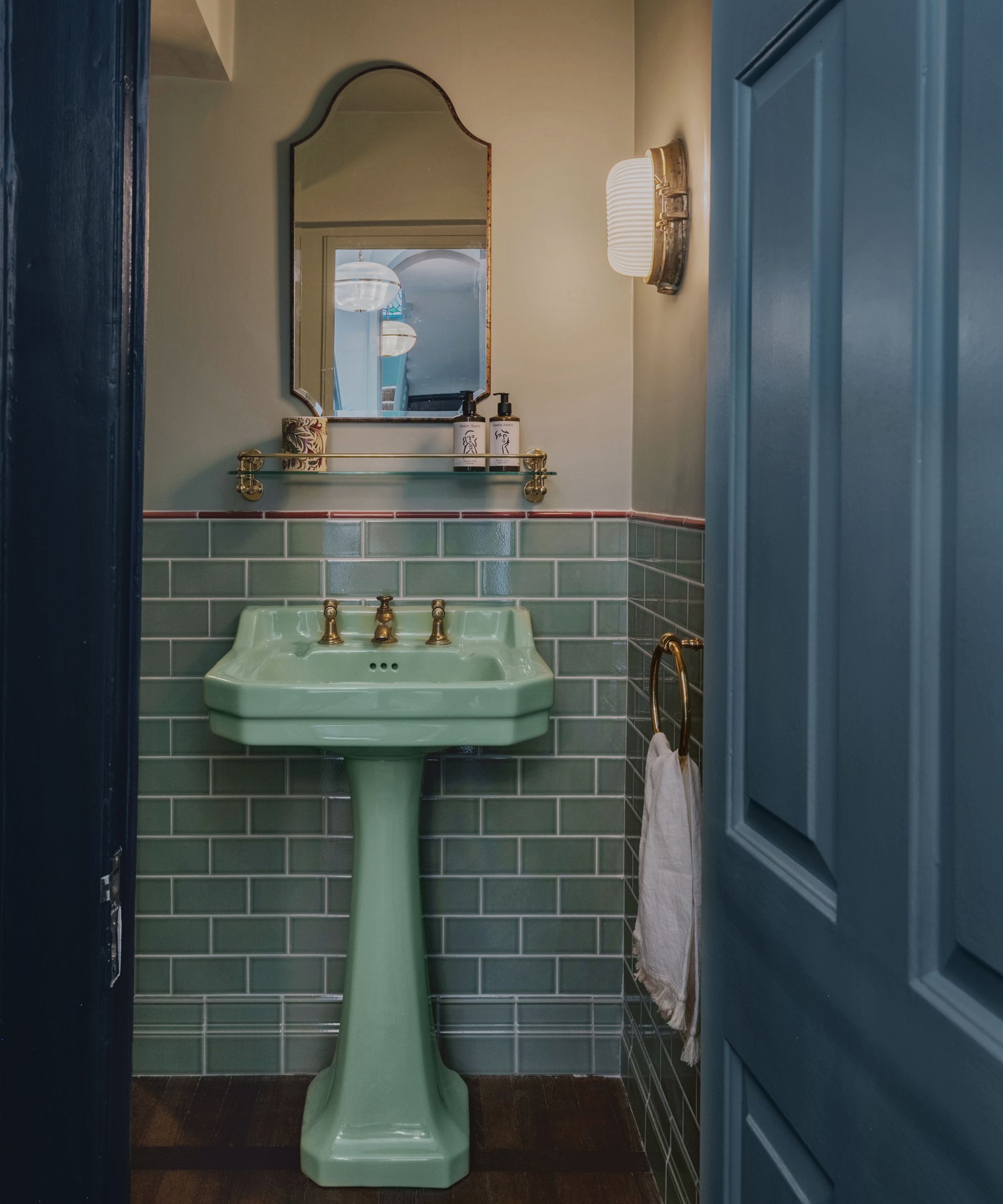
If you're not keen on harsh chemicals but need your drain cleaned quickly or are dealing with a more stubborn blockage, using enzyme-based drain cleaners is a great in-between option.
'Enzyme-based drain cleaners are much better choices since they do not destroy the environment unlike corrosive ones,' says Daniel Brown. 'These natural bacteria and enzymes break down organic materials in your drains.'
Daniel recommends using the Green Gobbler Drain Clog Dissolver available at Walmart, which is a popular bio-degradable and odorless pick. It's also safe for all pipes and septic systems, with a powerful formula that doesn't use bleach or sodium hydroxide.
FAQs
What do plumbers use to unclog drains?
If a bathroom or kitchen sink drain blockage is so bad that you have to call in the professionals, chances are they will use hydrochloric acid to unclog it.
It's typically poured directly down the drain in controlled amounts. Your plumber will then monitor the reaction happening in your pipes to avoid any damage, so it's important that you don't try this solution at home.
Once they've cleared the blockage, the drain is then thoroughly flushed and rinsed with water to remove any residual acid.
What do plumbers recommend to keep drains clean?
The number one thing that plumbers recommend to keep drains clean is also the simplest – pouring boiling water down your sinks at least once a week.
This will help move any grease or grime that builds up in your pipes and can later cause blockages, particularly if you dispose of liquids you should never pour down your sink.
'Whatever solution you use, do not use harsh chemicals like those containing sulfuric acid or lye that can damage pipes,' says Joe Gerrior, masonry and drainage expert with over 30 years of experience at Gerrior Masonry & Landscape Construction Corp. 'As a professional, it's concerning the number of DIYers who end up with plumbing bills 10 times higher than if they had called a professional in the first place. My recommendation would be to call a professional for any clogs you can't clear with mechanical or natural solutions.'







